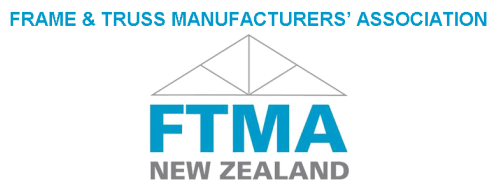What could the proposed changes to WES and BEI mean for you?NOTE: Submissions to WorkSafe NZ closed on 7 August 2019
Are you unsure what the proposed changes to the Workplace Exposure Standards (WES) and Biological Exposure Index (BEI) could mean for you? Do you know which of the substances on the list are relevant to our industry? Your Executive team has undertaken some research to identify the substances that may be relevant to frame and truss operations and to understand the possible outcomes. The results of our research are interesting, and we are sharing them with you here so that you can get a feel for what may or may not happen if the WorkSafe New Zealand (WSNZ) proposals are passed into law. We have also included below some actual test results from two members’ plants, which show likely failures to meet the proposed new standards. Click here to download the full article from Aug 2019 Cut-in plywood bracingWe receive queries from time to time about the use of cut-in plywood bracing when manufacturing prenailed wall frames –evidently there are some Councils (and even engineers) who believe that this method of bracing is not allowed. Over the past two or three years we have tried to have someone make a firm decision on whether this practice is or is not permissible.
Click here to download the full article from June 2019 FTMA comments on
|
The FTMA spent considerable time and cost in 2016 working with MBIE and their draft "Guidance Document on Manufactured Building Solutions". During the first half of 2017, MBIE advised that they were directing attention to other matters (such as the Canterbury earthquakes), to the extent that their Guidance document would not proceed further. In their words: “if the Frame & Truss sector keeps doing what it has been doing then they’ll be OK”. Accordingly, we believe we successfully argued our case. In our view, the FTMA Code of Practice document should cover any issues that may confront us from future MBIE deliberations.
There have been several other MBIE-led proposals for Building Reforms and amendments to the Building Act and the Building Code, the latest (in 2020) being the "Building (Building Products and Methods, Modular Components and Other Matters) Amendment Bill". This has become commonly known as Bill ONE and is currently (in July 2020) before Parliament. The FTMA continues to represent the interests of its members in these matters, and to present submissions on behalf of the membership where necessary. The FTMA also regularly reviews the definitions of Restricted Building Work (RBW) to clarify the status of prefabricated timber wall frames and manufactured roof trusses. |
Home About FTMA Timber In The Building Industry Meet Our Members Useful Links Contact Login copyright 2016 FTMA NZ

